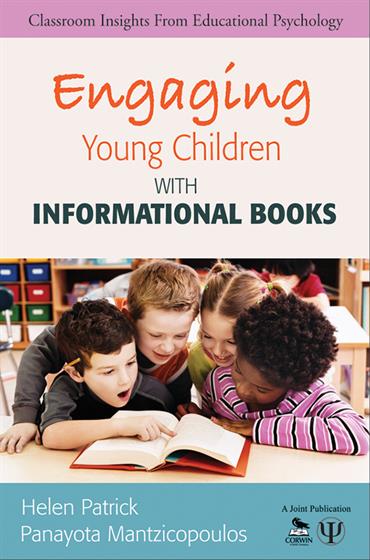
Hands-on, Practical Guidance for Educators
From math,
literacy, equity, multilingual learners, and SEL, to assessment, school counseling,
and education leadership, our books are research-based and authored by experts
on topics most relevant to what educators are facing today.
Engaging Young Children With Informational Books
Make informational books part of the K-2 learn-to-read experience—with strategies for shared reading, writing activities, ways to guide parent involvement, and real-life success stories.
Product Details
- Grade Level: PreK-12
- ISBN: 9781412986700
- Published By: Corwin
- Series: Classroom Insights from Educational Psychology
- Year: 2013
- Page Count: 232
- Publication date: October 10, 2013
Price: $33.95
For Instructors
When you select 'request review copy', you will be redirected to Sage Publishing (our parent site) to process your request.



